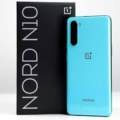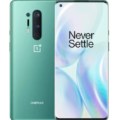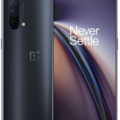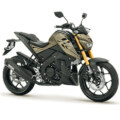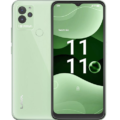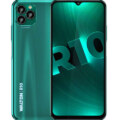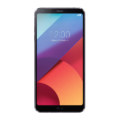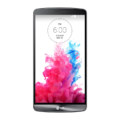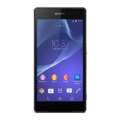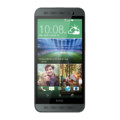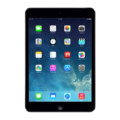OnePlus 8
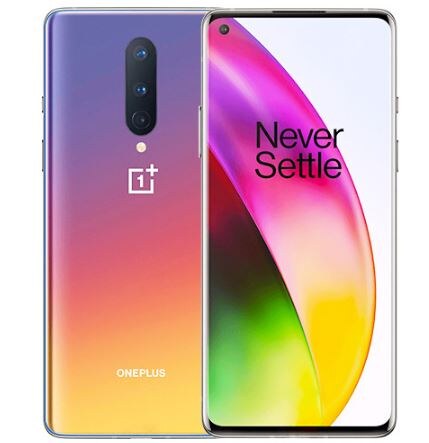




- USD: $339.97
- RS: ₹41,999
- BDT: ৳59,990.00
- Released: 2020, April 21
- OS: Android 10.0; OxygenOS 10.0
- Display: 6.55" 1080x2400 pixels
- Camera: 48MP 2160p
- RAM: 8/12GB RAM Snapdragon 865
- Storage: 128GB/256GB storage, no card slot
- Battery: 4300mAh Li-Po
OnePlus 8 - Specifications
Launch
| Announced | 14 April, 2024 |
| Status | Available. Released 2020, April 21 |
Network
| Technology | GSM / CDMA / HSPA / LTE / 5G |
| 2G Network | GSM 850 / 900 / 1800 / 1900 - SIM 1 & SIM 2 CDMA 800 / 1900 & TD-SCDMA |
| 3G Network | HSDPA 800 / 850 / 900 / 1700(AWS) / 1800 / 1900 / 2100 |
| 4G Network | LTE band 1(2100), 2(1900), 3(1800), 4(1700/2100), 5(850), 7(2600), 8(900), 12(700), 13(700), 17(700), 18(800), 19(800), 20(800), 25(1900), 26(850), 28(700), 32(1500), 34(2000), 38(2600), 39(1900), 40(2300), 41(2500), 42(3500), 46(5200), 66(1700/2100) - EU LTE band 1(2100), 2(1900), 3(1800), 4(1700/2100), 5(850), 7(2600), 8(900), 12(700), 13(700), 17(700), 18(800), 19(800), 20(800), 25(1900), 26(850), 28(700), 29(700), 30(2300), 34(2000), 38(2600), 39(1900), 40(2300), 41(2500), 46(5200), 48, 66(1700/2100), 71(600) - NA LTE band 1(2100), 2(1900), 3(1800), 4(1700/2100), 5(850), 7(2600), 8(900), 12(700), 17(700), 18(800), 19(800), 20(800), 26(850), 34(2000), 38(2600), 39(1900), 40(2300), 41(2500), 46(5200) - IN LTE band 1(2100), 2(1900), 3(1800), 4(1700/2100), 5(850), 7(2600), 8(900), 12(700), 17(700), 18(800), 19(800), 20(800), 26(850), 34(2000), 38(2600), 39(1900), 40(2300), 41(2500) - CN |
| 5G Network | 5G band 1(2100), 3(1800), 7(2600), 28(700), 78(3500); SA/NSA - EU 5G band 2(1900), 5(850), 41(2500), 66(1700), 71(600); SA/NSA - NA 5G band 78(3500); SA/NSA - IN 5G band 41(2500), 78(3500), 79(4700); SA/NSA - CN mmWave - Verizon exclusive |
| Speed | HSPA 42.2/5.76 Mbps, LTE-A (5CA) Cat18 1200/150 Mbps, 5G 7.5 Gbps DL |
| GPRS GPRS (General Packet Radio Service) is a packet oriented mobile data service on the 2G and 3G cellular communication system's global system for mobile communications (GSM), Generally, GPRS is used for the purpose of wireless data transfer, such as sharing pictures and videos or browsing the Internet via a mobile phone connection. | |
| EDGE EDGE (Enhanced Data GSM Environment) is a wireless network technology generally considered the next step in the 2G network offers data transfer rates up to four times faster than ordinary GSM networks, Generally, EDGE is used for the purpose of wireless data transfer, such as sharing pictures and videos or browsing the Internet via a mobile phone connection. |
Body
| Dimensions | 160.2 x 72.9 x 8 mm (6.31 x 2.87 x 0.31 in) |
| Weight | 180 g (6.35 oz) |
| Build | Glass front (Gorilla Glass 6), glass back (Gorilla Glass 5), aluminum frame |
| SIM SIM (Subscriber Identity Module) is a small card that contains mobile network subscriber's account information. This allows the phone using the card to attach to a mobile network. The SIM card is most commonly associated with GSM and UMTS mobile networks. Moving a SIM card from one phone to another allows a subscriber to switch mobile phones without having to contact their mobile network carrier. SIM cards can also be used by a phone to store limited amounts of data, such as phone numbers and text messages. | Dual SIM (Nano-SIM, dual stand-by) IP68 dust/water resistant (up to 1.5m for 30 mins) - Verizon and T-Mobile only |
Display
| Type Design Type called form factor refers to a mobile phone's size, shape, and style as well as the layout and position of major components of phone. There are three major form factors seen in mobile phones => bar phones, folding phones and sliding phones. | Fluid AMOLED capacitive touchscreen, 16M colors |
| Size | 6.55 inches, 103.6 cm2 (~88.7% screen-to-body ratio) |
| Resolution | 1080 x 2400 pixels, 20:9 ratio (~402 ppi density) |
| Multitouch | |
| Protection | Corning Gorilla Glass 6 HDR10+90Hz refresh rate |
Platform
| OS | Android 10.0; OxygenOS 10.0 |
| Chipset Chipset is a group of integrated circuits designed to perform one or a more dedicated functions, often with real time computing constraints, Popular smartphones are equipped with more advanced embedded chipsets that can do many different tasks depending on their programming. | Qualcomm SM8250 Snapdragon 865 (7 nm+) |
| CPU CPU (Central Processing Unit) mostly known as processors, CPU processes instructions in order to carry out certain functions that make your device operate properly. Processors are often described as the brain of computers, smartphones and tablets, Smartphones and tablets rely on processors to carry out their every task, Processors are an incredibly important factor in selecting any type of computing device, including your smartphone. | Octa-core (1x2.84 GHz Kryo 585 & 3x2.42 GHz Kryo 585 & 4x1.8 GHz Kryo 585) |
| GPU GPU (Graphics Processing Unit) is a single-chip processor designed to rapidly manipulate and alter memory to accelerate the creation of images in a frame buffer intended for output to a display, This includes things such as lighting effects, object transformations, and 3D motion. | Adreno 650 |
Memory
| Card Slot Memory Card Slot is a special slot for inserting a memory card. Memory cards allow you to expand the phone's built-in memory, A memory card (sometimes called a flash memory card or a storage card) is a small storage medium used to store data such as text, pictures, audio, and video, for use on small, portable or remote computing devices such as mobile phones, mp3 players, digital cameras. | No |
| Internal | 128/256 GB UFS 3.0 |
| RAM (Memory) RAM (Random Access Memory) is a type of computer memory that can be accessed randomly, any byte of memory can be accessed without touching the preceding bytes that allows information to be stored and accessed quickly from random locations. RAM is the most common type of memory found in computer systems, smartphones, tablets and other electronic devices. | 8/12 GB |
Camera
| Primary Camera is able to capture photographs and usually videos, The most important characteristics of a camera are the resolution (measured in megapixels), lens focus type (fixed or automatic), higher megapixel cameras are known to capture higher quality photos, but not always a good measurement of the photos quality. | 48 MP, f/1.8, 25mm (wide), 1/2.0", 0.8µm, PDAF, OIS 16 MP, f/2.2, 13mm (ultrawide), PDAF 2 MP, f/2.4, (macro) |
| Secondary | 16 MP, f/2.0, (wide), 1/3", 1.0µm |
Sound
| Alert Types | Vibration, MP3, WAV ringtones |
| Loudspeaker | Yes, with stereo speakers |
| 3.5mm jack | No |
Connectivity
| WLAN | Wi-Fi 802.11 a/b/g/n/ac/ax, dual-band, Wi-Fi Direct, DLNA, hotspot |
| Bluetooth Bluetooth is a wireless communications technology for exchanging data between mobile phones, headsets, computers and other network devices over short distances without wires, Bluetooth technology was primarily designed to support simple wireless networking of personal consumer devices. | 3.1, Type-C 1.0 reversible connector, USB On-The-Go |
| GPS GPS The Global Positioning System is a satellite-based radio navigation system, GPS permits users to determine their position, velocity and the time 24 hours a day, in all weather, anywhere in the world, In order to locate your position, your device or GPS receiver must have a clear view of the sky. | Yes, with dual-band A-GPS, GLONASS, BDS, GALILEO |
| NFC NFC (Near field communication) is a set of standards for smartphones and similar devices to establish peer-to-peer radio communications with each other by touching them together or bringing them into proximity, usually no more than a few inches. | |
| FM Radio | |
| USB | 3.1, Type-C 1.0 reversible connector, USB On-The-Go |
| Infrared Infrared connectivity is an old wireless technology used to connect two electronic devices. It uses a beam of infrared light to transmit information and so requires direct line of sight and operates only at close range. |
Features
| Sensors Sensors are electronic components that detects and responds to some type of input from the physical environment. The specific input could be light, heat, motion, moisture, pressure and location, The output is generally a signal that is converted to use in computing systems, a location sensor, such as a GPS receiver is able to detect current location of your electronic device. | Fingerprint (under display, optical), accelerometer, gyro, proximity, compass |
| Messaging | SMS(threaded view), MMS, Email, Push Email, IM |
| Browser | HTML5 |
| Java |
Battery
| Battery Type Battery Type => Cell phones run on various kinds of batteries depending on the manufacturer, phone size or shape and features. There are basically four types of cell phone batteries => Lithium Polymer, Lithium Ion, Nickel Metal Hydride and Nickel Cadmium. | Non-removable Li-Po |
| Capacity Battery Capacity is a measure (typically in Amp-hr) of the charge stored by the battery, and is determined by the mass of active material contained in the battery. The battery capacity represents the maximum amount of energy that can be extracted from the battery under certain conditions. | 4300 mAh |
More
| Made by | China |
| Other Features | Fast charging 30W, 50% in 22 min (advertised) |
| Colors | Onyx Black, Glacial Green, Interstellar Glow, Polar Silver |
OnePlus 8 - Reviews/Comments
Sorry, reviews are closed for this product.
The price of the OnePlus 8 is BDT 59,990. OnePlus 8 smartphone comes with 6.55 inches, 103.6 cm2 (~88.7% screen-to-body ratio), Fluid AMOLED capacitive touchscreen, 16M colors display and resolution 1080 x 2400 pixels, 20:9 ratio (~402 PPI density). OnePlus 8 performing Octa-core (1×2.84 GHz Kryo 585 & 3×2.42 GHz Kryo 585 & 4×1.8 GHz Kryo 585), Qualcomm SM8250 Snapdragon 865 (7 nm+) processor. It has 8/12 GB of RAM and 128/256 GB internal storage, which can not be expanded to external storage. This stylish device has a 48 MP, 8 MP, 2 MP in the back, and a 16 MP camera on the front side. It was powered by a standard 4300 mAh battery.
Disclaimer: Dear readers, the Internet is the source of all our information. We collect data and images from various reputable websites, so we can’t say that our data is 100% accurate. However, we try our best to present the information as accurately as possible. We sincerely apologize for the unintentional mistake.

